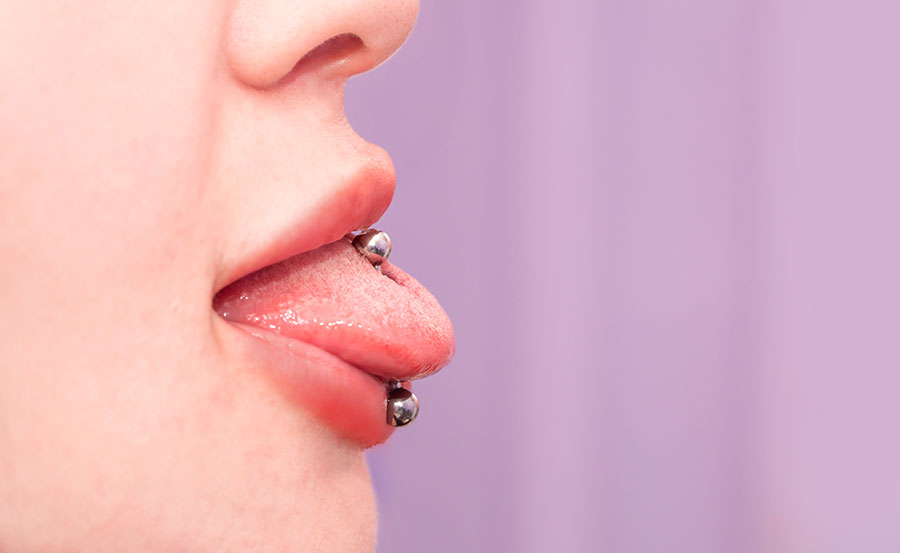
A new year often means making bold choices, like getting that piercing you’ve always wanted. Ears. Lips. Bellybuttons. Piercings have become very popular, especially among teenagers and young adults. But piercings can cause many complications, especially oral piercings. Oral piercings, or the tongue splitting trend, may look cool, but they can be hazardous to your oral health. The main reason it’s dangerous is that our mouths contain millions of bacteria, which means piercings have a high chance of infection and swelling.
For instance, if your mouth and tongue swell up so much, it can close off your airway. There is also a chance that you can choke if part of the jewelry breaks off in your mouth. In some cases, if you bite down too hard or repeatedly play with the jewelry against your teeth, you could crack a tooth or cause other damage. There is also the risk of your oral piercing causing serious infections, like hepatitis or endocarditis.
It is popular for people to also pierce their lips, cheeks, and really any other part of their mouth. These types of piercings can interfere with speech, chewing, or swallowing. Other issues it can cause include:
- Injury to gums, teeth, and fillings. As stated above, many people that have these types of piercing develop the habit of biting or playing with the piercing. They’re at risk of having cracked, scratched, or sensitive teeth. Piercings can also damage fillings or other work is done.
- Allergic reaction to metals. Some people aren’t aware of their allergies to metals, which is extremely dangerous.
- Nerve damage. After a piercing, it is not uncommon to experience a numb tongue caused by nerve damage. While it is usually temporary, it can sometimes be permanent. The injured tongue nerves could affect your sense of taste, or how your mouth functions. If you damage your tongue’s blood vessels, it can cause blood loss.
- Excessive drooling. Tongue piercings can cause saliva production to increase.
- Dental appointment difficulties. The jewelry gets in the way of dental care because they block X-rays.
The ADA recommends that dental patients with an oral piercing should keep their piercing site clean. They should also avoid playing with oral-piercing jewelry and keep an eye on their oral cavity for signs of infection, which includes swelling, pain, tenderness or unusual discharges (particularly those that smell bad). All forms of intraoral or perioral jewelry (tongue barbell, lip ring or stud) should be removed prior to participating in athletic and other physical activities, especially contact and collision sports.
If you have any other questions about oral piercing and how they can affect your dental health, give Foothill Dental Care a call today. Our Livermore dentists are ready to help you! Call us today at (925) 961-5484!
